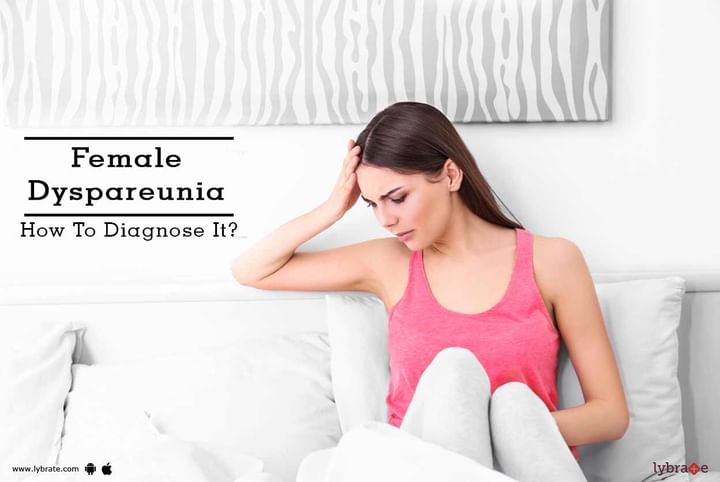Female Dyspareunia - How To Diagnose It?
Female dyspareunia refers to painful sexual intercourse. It is estimated that 8 to 21% of women experience this at some point in their lives. Pain during or after intercourse is disturbing and restricts partners need for intimacy. It leaves the partners with an unpleasant experience and may lead to frustrations, anxiety and fear of sex. There is little awareness among couples about dyspareunia and thus a painful experience is sometimes confusing for the other partner and often invites fights and arguments rather than support and understanding.
Women with dyspareunia suffer pain in genitalia or deeper in the pelvis, vulva or vagina. It is more common among women after menopause; however, many women experience pain right from their first sexual attempt or just after initiation while some at deeper penetration. Causes of Dyspareunia could be medical, psychosocial or both. Medical conditions can be cured but often there are underlying personal and psychological factors which need to be addressed usually by counsellors or sexologists.
Diagnosis of the problem begins with a physical examination of the vulva. Apart from this an internal pelvic examination may also be required. A doctor takes into account the nature, extent and duration of pain in determining possible causes and deciding the mode of treatment. During interaction with the patient, various other psychosocial factors are also revealed that must be addressed for holistic treatment.
Medical conditions that could cause pain during or after intercourse are many including lesions, thin skin, scar tissues or ulcers. Infections like UTI, herpes, yeast infections, Chlamydia, trichomoniasis can also cause pain.
Treatment of infections is through drugs and creams.
Apart from this, infections of the fallopian tubes or conditions like ovarian cysts, fibroids, tumours or endometriosis could be a reason for deeper and intense pain. In most of the cases, surgery is the option.
Lack of oestrogen is another major cause for this type of pain. Oestrogen deficiency can cause lack of lubrication making vaginal area dry. This can cause painful friction during intercourse. Along with lubricants, an oestrogen treatment is given.
Apart from medical causes, fears or anxieties associated with sex can sometimes lead to pain. Lack of harmony in relationships can lead to loss of desire for sex leading to vaginal dryness and discomfort. A traumatic sexual experience of the past may also inhibit a partner to be at peace in the act and may invite psychosomatic problems. It is important for the partner to be sensitive and lend a hand of support. Understanding how a partner wishes to be caressed and touched and making efforts towards providing a sexually exciting experience can go a long way in removing partner’s inhibitions/fears and introducing positive sparks in the relationship.



+1.svg)
